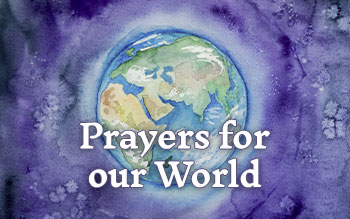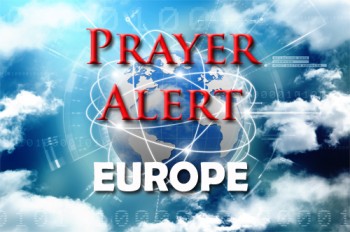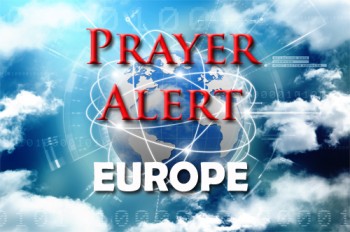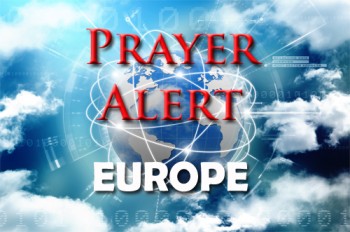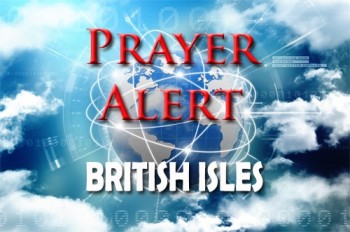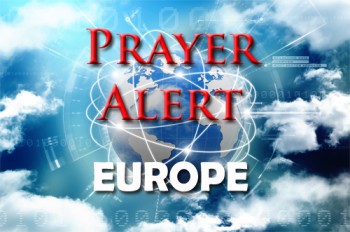Displaying items by tag: Europe
Poland: U.S. Agrees To Station 'About 1,000' More Military Personnel
The United States has agreed to station "about 1,000" more military personnel in Poland as the government of the East European country seeks to counter what it perceives as a growing Russian threat.
However, the joint U.S.-Poland declaration signed by President Donald Trump on June 12 stopped short of calling it a permanent presence, potentially easing Kremlin concerns about a larger U.S. military presence near its western border.
Trump earlier in the day said the increase in U.S. forces in Poland could come at the expense of Germany -- whom he criticized for underspending on NATO defense and overspending on Russian gas.
"We would be taking them out of Germany or we would be moving them from another location. It would be no additional troops to Europe," Trump said shortly before reaching the agreement.
The United States has 52,000 troops based in Germany, Trump said. The Pentagon told RFE/RL that the sourcing of the military personnel and other details of the agreement "are still being worked out."
About 4,500 U.S. troops have been stationed in Poland on a rotational basis for the past few years in response to Russia's 2014 annexation of Crimea and Moscow's continued military support for separatists in eastern Ukraine.
NATO separately placed about 1,200 troops in Poland in 2017 as part of its efforts to beef up deterrence against Russia in Eastern Europe and recently agreed to invest $269 million to support U.S. forces in the country.
The 1997 NATO-Russia Founding Act pledges the alliance to carry out its collective defense without the "additional permanent stationing of substantial combat forces." However, the pledge only applied to the "current and foreseeable security environment" at the time.
NATO Secretary-General Jens Stoltenberg said the June 12 U.S.-Polish agreement was "fully in line with NATO's international commitments."
"When the world changes, we have to adapt to make sure that we can continue to protect all allies," Stoltenberg said in the statement, possibly hinting at Russia's actions in Ukraine.
Poland last year proposed spending as much as $2 billion to host a permanent U.S. armored division, which consists of between 10,000 and 15,000 troops, to strengthen its defense against Russia.
Russia, which occupied part of Poland under the tsars, "is again showing its imperial face" by its actions in Ukraine, Polish President Andrzej Duda said at the joint press conference with Trump.
According to the agreement, the U.S. military will expand its "enduring presence" in Poland by about 1,000 personnel "in the near-term." Poland will finance that expanded presence as well as additional military infrastructure, including a U.S. divisional headquarters.
Russia could seek to build up its military presence in the exclave of Kaliningrad in response, former U.S. Army Europe commander Lieutenant General Ben Hodges told RFE/RL. He said the Kremlin could also put more pressure on Belarus to allow its troops into that country. Both Kaliningrad and Belarus border Poland.
Though the U.S. agreement fell far short of Poland's initial request, it is something that "could be scaled" up in the future should developments in Eastern Europe demand it, Eugene Chausovsky, a Eurasia analyst at Stratfor, told RFE/RL.
"This is something that the Polish government can claim as a victory of sorts," he said of the deal.
Poland helped win over Trump's support for the increased military presence by agreeing to purchase U.S. fighter jets as well as liquefied natural gas, Chausovsky said.
Trump confirmed during the joint press conference that Poland will buy nearly three dozen F-35 fighter jets -- worth in excess of $2.5 billion -- as well as an additional $8 billion of liquefied natural gas.
Poland is seeking to wean itself off Russian energy, which accounts for nearly 70 percent of its gas imports. Duda will travel to Houston with Energy Secretary Rick Perry to meet executives of U.S. energy companies during his six-day visit to the United States.
Washington and Warsaw are seeking to halt Russia's plans to build an $11 billion gas pipeline to Germany. The pipeline would make Germany a "hostage of Russia" while also supporting the Russian economy, Trump said.
"We are protecting Germany from Russia, and Russia is getting billions and billions of dollars of money from Germany," Trump said ahead of his meeting with Duda.
He highlighted that Germany was only spending about 1 percent of gross domestic product on defense, below the 2 percent threshold set by NATO members in 2014.
Hodges said moving troops from Germany to Poland would be taken as a sign that the United States was punishing Berlin for its failure to meet defense spending limits.
However, he said, maligning Berlin was not in Washington's interest.
"We have to make sure that we treat Germany as our most important ally. Spending is such a small component of the relationship. You can't put a price tag on" all that Germany does for the United States, said Hodges, who is now with the Center for European Policy Analysis.
Article by Todd Prince
Europe: Alliance for Christ Newsletter
During the European Trumpet Call worship and intercession conference at the beginning of September 2015, in Timisoara (Romania), the Lord encouraged the intercessors who had gathered together from many European nations with the word from Isaiah 62:4 'No longer will they call you Deserted … but you will be called Hephzibah (Delight is in Her) and your land Beulah (Married)'.
Then, in a prophetic act on behalf of our continent, we broke off the old anti-christian covenants and as partakers in the covenant and promises for Israel, through Christ, we made a new covenant with the Lord and re-named Europe 'Beulah' (Married). Directly after that, the great flood of refugees began to pour into Europe and since then we have been experiencing shakings in the EU at all possible levels in life, nature, society, politics and in the Church.
'Look at the nations and watch and be utterly amazed. For I am going to do something in your days that you would not believe, even if it were told you.' (Habakkuk 1:5)
The Lord is using these present shakings within the European nations and the EU for His purposes. It is still His desire for all men to be saved and come to the knowledge of the truth and that we (the Church) can live in godliness and holiness and, since our lives and those of our families and churches are governed by those in authority, we are urged first of all to pray for them (1 Timothy 2:1-4).
European Union
Let us thank the Lord for the results of the European Parliament elections! A great transition is in progress. Around two thirds of the Members of Parliament will be replaced and new alliances need to be formed. Subsequently, many executives in the EU administration will also be replaced.
The following key positions are to be newly elected:
- • President of the EU Parliament – by the EU Parliament
- • President of the EU Commission – by the EU Parliament
- • President of the EU Council – by the European Council
- • EU High Representative for Foreign Affairs – by the EU Commission
- • President of the European Central Bank – by the European Council
Let us pray that as many God-fearing people as possible will be elected into office – people who have a sense of justice, wisdom and integrational strength, and who also respect and understand the cultural diversity of the nations within the EU.
Also pray that the powers striving to subjugate nations by a centrally controlled EU Empire, will be broken.
The idea of creating a United States of Europe on the model of the USA is unrealistic. The USA was created by people from many different nations – people who left their native countries for distant America and formed a new state structure with a shared language and shared core values.
The influence of God-fearing men and women in the founding phase was immense and so, within a relatively short time, a new, US American identity emerged with people who no longer thought of themselves as being British, German, Italian, French etc., but as being citizens of the USA.
Europe is very heterogeneous in that it is made up of many nations, each with their own language and culture and some with a history going back for up to thousands of years. The size of these nations and also their economic strength varies tremendously between the north and south, and the east and west of Europe.
The smaller and economically weaker nations have long perceived the EU as an 'Empire' in which the weaker nations are dominated by the stronger ones (especially by Germany) and the EU administration. They fear that they might lose their identity and freedom and that they will have to pay a high price for any advantages the EU has to offer.
This is something the Lord cannot bless. If the EU does not want to disintegrate, it must find new ways of providing regional development aid that promotes peace and not disunity between great and small and poor and rich. In addition there needs to be a clearer definition and agreement between common EU legislation and national sovereignty.
Above all, the nations of the EU need a fresh encounter with God and the gospel of the Lord Jesus Christ. Fervant prayer avails much!
Brexit
Just recently, we celebrated the founding of the German State, seventy years ago, and the seventy-fifth anniversary of D-Day. We were reminded of what it cost the British and Americans, along with their Allies and the resistance movements within the occupied nations, to liberate Europe and establish peace.
Great Britain is the only country in Western Europe that successfully resisted the German war machine. Around 330,000 Britons lost their lives. History testifies to the miracles that gave advantage to the British and their allies, and to the importance of the nationals days of prayer called by the King, as well as the intercession of Rees Howells, and the Bible School of Wales.
After the war, the British did not seek revenge. Along with the Americans, they helped to rebuild Germany with a new constitution as a Federal Democratic Republic. Thanks to the strong Christian Values held at that time by the British and Americans, Germany was released from a huge debt, was reconciled with France, preserved its sovereignty and, eventually, was re-admitted to the community of nations.
Bearing these facts in mind, and considering the friendship built up over the last decades, it is high time for a change in policy regarding Britain leaving the EU. The present attitude of the EU leaders is: 'We will no longer negotiate and if the British do not want to accept the presented agreement, then we will treat them like the rest of the world, not even granting a transition phase.' In the light of history and for continued friendship, such an attitude is arrogant and disrespectful.
Let us pray for a positive change within the EU leadership and administration regarding Brexit.
Let us also pray for the forming of the new British government with new vision for the future and sound judgment to protect the sovereignty of Great Britain, while defining its future synergy with the EU.
Evangelisation
Germany and Europe need to be reached again with the gospel of Jesus Christ. The Lord is mobilising a new generation of evangelists along with His Church. This was the main emphasis at a conference held by Christ for all Nations (CfaN) at the end of May, in Hamburg.
Over four thousand attended, including many young people, when the evangelist, Reinhard Bonnke‚ passed on the baton to the younger generation. This new movement needs to be accompanied by prayer!
March for Jesus
The March for Jesus movement is presently experiencing a new awakening. The Lord is encouraging Christians in several European cities to go on the streets and publicly profess His name.
The next March for Jesus will be held in Munich on the 28th of July, under the leadership of Chad Chambers and ‚Europe Ablaze’ team. More information and registration under www.europeablaze.tv
Yours in Christ
Berthold Becker
Italy: rescue boat defies Salvini, enters port
A German humanitarian group operating a rescue boat with 42 rescued migrants on board was in limbo in the Mediterranean for two weeks after Italy ordered it not to enter its territory. The captain ran out of options and turned the boat towards Lampedusa. He said, ‘I know what I'm risking, but the survivors are exhausted. I'm taking them to safety.’ Italy's hard-line anti-migration interior minister Matteo Salvini vowed fines, arrests, and a boat seizure. He said that other European countries should take responsibility for the migrants; in this case Germany, where the NGO has its headquarters, and the Netherlands, because the vessel flew a Dutch flag. On 27 June the boat reached Lampedusa and law-enforcement officers boarded it. By then the migrants were ‘desperate’. Salvini wants Italy to ignore European rules and refrain from registering and identifying future new arrivals.
Spain: worst wildfire in twenty years
On 27 June, amid a Europe-wide heatwave, a forest fire in Catalonia raged out of control, despite the efforts of hundreds of firefighters working through the night. It broke out on 26 June, and had destroyed over 10,000 acres by the next morning. Already thirty people have been evacuated from farmhouses, and the regional government warned that it could eventually devour 50,000 acres. It may have been caused by manure in a farm generating enough heat to explode and produce sparks. Much of Europe is gripped in a record-breaking heatwave that could send thermometers above 40 C (104 F).
France: healing in a foreign land
Greater Europe Mission (GEM) write: ‘We met Malik in a French square where refugees hang out. Originally from Senegal, Malik had travelled through Mali, Algeria, Syria, Italy and then France before we met him. He only had the clothes on his back and whatever was in his backpack. We took him to get some food, but he did not understand our English. When the local pastor translated, Malik’s face lit up in a painful smile. He had a horrible toothache. A few days later we invited him to come along as we visited a Jewish neighborhood. We visited a Jewish bakery owner, and read Isaiah 53 together. Not long after this he prayed a prayer of salvation. Malik being befriended was a picture of disciples making disciples who make disciples. It was the best training Malik could receive after accepting Christ into his life.’
EU: candidate to succeed Juncker
At the time of writing European leaders are trying to agree on a compromise EU leader after political groups failed to unite behind a candidate to replace Jean-Claude Juncker in Europe’s top job. Following the elections in May, nobody has won united support from the four mainstream parties to become president of the EU’s executive arm. Onlookers are calling it a ‘big fight’ between Europe's political groups, leaders, and institutions. Other vacancies to be filled include speaker of the European parliament, which will sit for the first time on 2 July, and foreign policy chief. The final nominees must have the backing of least 21 of the 28 EU leaders and a majority in the 751-member parliament. National leaders want to control the process and allocate the most senior jobs in a way that balances men and women, east and west, small countries and large.
Worship and prayer initiative
Celtic Christianity once flourished in this nation. Spiritual wells were established and God’s Spirit flowed, bringing renewal and revival. The wells are still there today - underground, but blocked and covered over. World Horizons wants simultaneous groups to worship and pray at all the major spiritual wells of the past, asking God for the living water to rise up again! This is not just a UK event, it will be happening all over Europe. On Friday 21 June we will thank God for all his wonderful works over 2000 years. The next day we can ask him to send new life to these places again today - reopening ancient wells as Isaac did. On 23 June, ask him to send revival to the whole of Europe! Can you gather a group to worship and pray at a spiritual well near you? Was there a saint or powerful preacher like Wesley, or a monastery? If you feel called to take part please contact
Russian journalist falsely accused
Moscow police had detained Ivan Golunov, an anti-corruption journalist, for alleged drug offences. However, they had to drop charges against him after his arrest caused displays of support from other Russian journalists and cultural figures, 25,000 people expressing their disgust on Facebook, and a threatened protest march. Police involved in the case were removed from duty pending investigations, and President Vladimir Putin will be asked to dismiss more senior personnel. The Kremlin admitted that ‘mistakes had possibly been made’. Forensic tests did not detect Ivan’s fingerprints on the drugs purportedly seized from his home, neither was there any trace of drugs in his urine or on his fingers. Photographs supposedly showing a drug lab at his flat were later deleted after a policeman admitted they were taken at a different location and bore no relation to the journalist. Human rights groups said police in Russia often plant drugs on suspects.
Albania: president cancels elections
Protesters were met with tear gas and flares on the streets of Tirana, after Albania’s president Ilir Meta cancelled the 30 June elections. He cited political tensions in the country, stating that circumstances do not provide the necessary conditions for true, democratic, representative and all-inclusive elections. The opposing centre-right Democratic Party, led by Lulzim Basha, have held weeks of protests aimed at forcing the prime minister to stand down. They accuse him of links to organised crime and vote-rigging. The United States and the EU are urging protesters to disavow violence and take part in dialogue with government representatives to resolve the political crisis. The EU has criticised some violent tactics used by protesters. Smoke bombs and firecrackers outside parliament were met with tear gas. Mr Basha has urged continuing protests until Mr Rama steps down.
Germany: Two prayer requests
With the tremendous growth in what is now medically possible, organ donation raises many questions from a Christian-ethical point of view. Our society urgently needs to ask God for guidance and leadership in these increasingly far-reaching questions of life and death. The German parliament will discuss and vote on organ donation proposals in the autumn without a party whip. We have been asked to pray for a God inspired and guided debate on how parliament should proceed with the organ donation question. Secondly, Germany has about twenty large and influential criminal family clans, with their fingers in many pies, creating complex lawless challenges across the nation.
